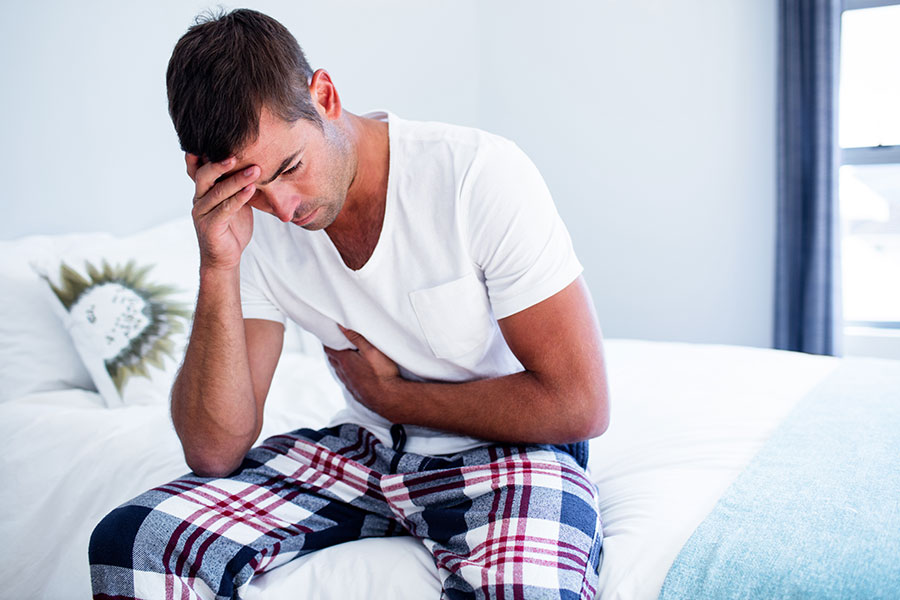Butterflies in your stomach, feeling like your stomach is in a knot, cramping, bloating, dare I say flatulence, nausea, indigestion, vomiting and frequent trips to the bathroom. People may not always talk about the less than pretty symptoms of a nervous stomach, but stomach pain is a very common symptom of anxiety and stress. Just as anxiety has a profound impact on the mind, it also puts a lot of stress on the body.
There is a strong connection between the brain and gut, they even share some of the same nerve connections. According to the Anxiety and Depression Association of America, “Whether it’s a single nerve-wracking event or chronic worry and stress over time, stress can exact a physical toll on your digestive system. When you are anxious, some hormones and chemicals released by your body enter your digestive tract, where they interfere with digestion. They have a negative impact on your gut flora and decrease antibody production. The resulting chemical imbalance can cause a number of gastrointestinal conditions.” Because the stomach issues caused by anxiety are real, it can be difficult to identify if there is an organic health issue-which is why it’s always a good idea to visit your doctor. If you’ve already established that anxiety and stress are the cause of your stomach issues, here are some tips to help:
Avoid Caffeine: The caffeine content in coffee can propel and exacerbate anxiety and nervousness along with stimulating the bowels. Healthline suggests trying less stimulating caffeinated drinks such as green tea or oolong tea.
Relax: Whether you’re in the comfort of your own home or out and about, clear your head to take control of your nerves. When you’re able, Healthline recommends using incense and oil diffusers with calming herbs such as chamomile, lavender, vetiver or rose- these in combination with relaxation can go a long way to reduce stress and anxiety.
Food: According to Calm Clinic, anxiety related stomach issues are not usually connected to your diet, so there aren’t any specific dietary changes recommended to reduce stomach pain. They go on to say, “those with panic attacks and severe anxiety are more prone to experiencing severe stomach discomfort, even when no anxiety is present due to over-sensitization. This means that they are more likely to notice and feel smaller, normal changes in the body and these changes can trigger an anxiety attack. So, if your diet does contain foods that cause you gas, stomach discomfort, or mild indigestion, it may be best to avoid them because the slight amount of discomfort could feel worse than it should and may trigger an anxiety attack.” Fruits, vegetables, water/hydration and whole grain carbohydrates are ways to eat healthy if you suffer from anxiety related stomach pain.
Move around: According to Harvard Health Publishing, aerobic exercise can help reduce stress hormones, like adrenaline and cortisol and boost endorphins, the body’s “natural pain killers.” Get your exercise in to help reduce overall stress reactions.
If you’re dealing with stomach issues caused by stress and anxiety, you already know the negative impact it can have on your daily functioning. You don’t have to accept a life of chronic stress and anxiety. It takes a strong person to seek help and work on self-improvement and it starts with talking to your doctor if you haven’t already. It may take some time and effort to get your stomach issues under control, but don’t forget that EFFORT YIELDS RESULTS and maybe less time in the bathroom!








